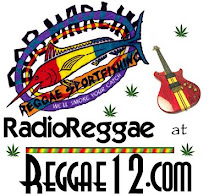Find the Berkeley show and two others at www.VitalVibes.com
Here's the bio from his website (www.JoeHiggs.com)
The Father of Reggae
Joseph Benjamin Higgs
June 3, 1940 - December 18, 1999
Joe Higgs was hugely influential in the birth of ska, rock steady and reggae forms of Jamaican music, and was widely respected as a composer, arranger, and performer, but perhaps most of all as a teacher. Among those he tutored were Bob marley, Derrick Harriott, Peter Tosh, Bob Andy, The Wailing Souls and Bunny Wailer. One of the first recording artists in Jamaica, his debut single, made with partner Roy Wilson, was "Oh Manny Oh," which sold over 50,000 copies in Jamaica in 1960. It led to his signing by Edward Seaga, who later became Jamaica's Prime Minister during the 1980s. Seaga arranged for Higgs to be booked on local shows, alongside Sam Cooke, Jackie Wilson, and other foreign stars. In 1964 he recorded "There's A Reward" for producer Coxone Dodd's Studio One, a song that became an instant classic of suffering and hope.
Although Higgs claimed to have received no royalties from its sales, he was sanguine about the fact, claiming "I realize that the only person that can give me my reward and what I'm entitled to is the Almighty." It was in Higgs' Trench Town backyard that the young Bob Marley received years of private tutoring in vocal technique and stage craft from Higgs, years before he began recording with his group, The Wailers. Marley later admitted that "Joe Higgs was a genius," crediting him for his international musical success. In 1972, Higgs won the Jamaica Tourism Song Competition (presented by the Jamaica Tourist Board) with "Invitation To Jamaica," whose prizes included a trip to New York, where he performed for the first time. The bouncy tune was uncharacteristic of Higgs' more normal roots sound, which mixed rhythmic jazzy scat singing with heartfelt lyrics that expressed deep political awareness and a keen sense of history and classical lliterature.
Songs like "So It Go" and "Freedom" kept him on the local charts. In 1973 when Bunny Wailer quit The Wailers, Higgs was asked to accompany his former students, Marley and Tosh on their debut American tour as opening act for Sly and the Family Stone. They played critically acclaimed shows from New York to Boston to San Francisco and were chief among the first wave of musicians who brought the music to U.S. awareness. In 1974, another set of former students, The wailing Souls, joined with Higgs briefly to form the group Atarra. But it was his allignment with emerging superstar Jimmy Cliff, hot off his success in the landmark film "The Harder They Come," that brought Higgs mainstream attention as Cliff's bandleader and co-vocalist, often before huge crowds in venues like New York's Central Park and Madison Square Garden. Higgs' first solo album came out in the mid '70s called "Life Of Contradiction," and featured jazz guitarist Eric Gayle, solidifying Higgs' reputation as he often reminded audiences as the jazz connection for Jamaican music.
In the compelling 1977 reggae documentary film "Roots, Rock, Reggae," Higgs told director Jeremy Marre that "Reggae is a confrontational sound; Freedom - that's what it's asking for; Acceptance - that's what it needs." "Unity Is Power" followed in 1979. His 1983 single "So It Go," which called attention to the plight of the poor who have no mentors in high places, caused Higgs political problems with the ruling party in Jamaica, and so he left for Los Angeles, where he lived in self-imposed exile until his death. His later albums included 1990s "Blackman Know Yourself," backed by The Wailers Band. The collection featured Joe's most famous composition "Stepping Razor," which had become a signature song for the 6-foot 4-inch Peter Tosh. "The give away line," the slightly built Higgs always told people, "is 'Don't you watch my size, I'm dangerous.' There's no way no six-foot-something guy could write that!" At the time of his death, Higgs was working on an autobiography with this writer, and had been working on a cross-cultural project recorded at U2's studio in Dublin, to be titled "Green On Black," uniting Gaelic artists like Sharon Shanon and Donald Luney with Higgs, in lengthy Irish-jazz improvisions. His last L.A. appearance was Father's Day in Long Beach at the Old School Reggae Jam. His actual last show was in Brekley on June 26, 1999 at Ashkenaz. Prior to that he played Palookaville in Santa Cruz...
- by Roger Steffens


No comments:
Post a Comment